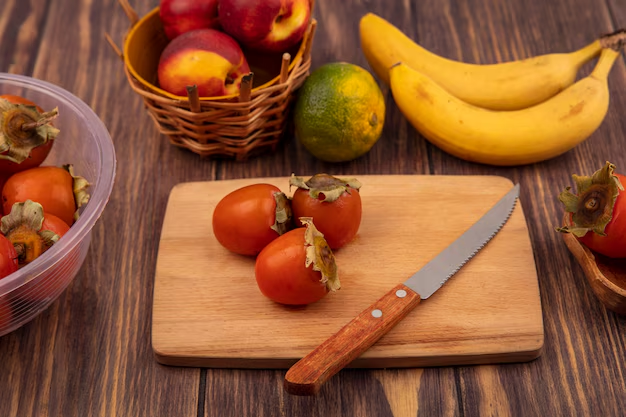The Shelf Life of Apples: How Long Do Apples Last in the Refrigerator?
Apples are a timeless choice for anyone seeking a healthy, crunchy snack. Whether they're sitting in a bowl on your counter or tucked away in the fridge, apples have become a daily staple in many households worldwide. Yet, a common question persists for apple lovers: "How long are apples good for in the refrigerator?" Understanding the storage potential of apples is essential, not only for reducing food waste but also for enjoying the best texture and flavor these fruits offer.
Let's explore this topic from different angles, offering practical insights into extending the freshness of apples and how different factors may influence their longevity.
🕒 How Long Do Apples Last in the Refrigerator?
In general, apples can stay fresh in the refrigerator for up to six to eight weeks. This extended shelf life makes refrigeration a helpful storage option for those who purchase apples in large quantities or need them to last beyond their typical pantry lifespan.
Why Refrigeration Works
Refrigeration slows down the apple's natural ripening processes and the growth of bacteria or mold, effectively extending edibility. In cooler settings, apples can maintain their crispness and nutritional value longer than if left at room temperature.
🍏 Factors Influencing Apple Shelf Life
Several factors affect how long apples will last, whether stored in the fridge or elsewhere. Let's dive into these factors for a deeper understanding:
Variety Matters
Not all apples are created equal when it comes to longevity. Some varieties naturally store better than others, thanks to their inherent resilience:
- Long-lasting varieties like Fuji, Granny Smith, and Honeycrisp hold up well in the fridge, maintaining quality over weeks.
- Shorter shelf-life varieties such as Gala or Red Delicious are better enjoyed more immediately due to their relatively softer texture.
Freshness at Purchase
Starting with fresh apples can significantly impact their lifespan. It's beneficial to choose apples without bruises, cuts, or blemishes, as damaged fruit is more prone to spoilage.
Storage Conditions
Proper storage conditions extend an apple's freshness:
- Humidity is key: Apples stay fresh longer in humid environments, as too much dryness can lead to shriveled skin and loss of texture. Refrigerators typically offer sufficient humidity to support apple storage.
- Light exposure reduction: Prolonged exposure to light can speed up ripening. The refrigerator provides a darker environment for apples, assisting in prolonging their shelf life.
🌡️ Ideal Apple Storage Techniques
Maximizing the longevity of your apples doesn't only rely on chilling them but also involves practical storage techniques. Here’s how:
The Right Spot in the Fridge
Place the apples in the crisper drawer, ideally away from produce sensitive to ethylene gas, like leafy greens. This drawer maintains a steady, cool temperature and high humidity level, reducing the chances of dehydration.
Keeping Them Separate
Apples emit a natural plant hormone, ethylene gas, which can hasten the ripening of nearby fruits. To prevent this cross-ripening effect:
- Keep apples stored separately from other produce.
- Use perforated plastic bags or dedicated containers to group apples, limiting ethylene gas effects.
❄️ Beyond Refrigeration: Other Storage Methods
For those with limited refrigerator space or seeking alternative methods, here are some additional ways to store apples:
Root Cellar
If you have access to a root cellar, it's an excellent place for apple storage. Cool, dark, and humid, cellars offer optimal conditions to mimic refrigeration without electricity.
Freezing Apples
If you foresee a glut of apples that may spoil, consider freezing them. Sliced apples can be frozen as long as they are flash-frozen first on a baking sheet to prevent clumping, then transferred to airtight bags.
Drying or Dehydrating
Turn apples into long-lasting dried snacks by using a commercial dehydrator or a low-heat oven. Dehydrated apples make flavorful additions to trail mix or dessert toppings without needing refrigeration.
📌 Quick Tips for Storing Apples
- Always wash apples before eating, but do not wash before storage, as moisture can lead to mold growth.
- Opt for refrigerators' crisper drawers to maintain the humidity levels necessary for longer apple preservation.
- Avoid plastic wrap or films that might create condensation around apples.
- If possible, store apples with the stem end facing upwards to lessen bruising.
- Check apples regularly for signs of spoilage; remove any that are too soft or developing mold to prevent it from spreading.
🍎 Recognizing When Apples Have Gone Bad
No matter the best storage techniques, apples won't last indefinitely. Here are signs that might indicate your apples are over their best-by period:
- Soft or mushy spots: Crisp apples will noticeably soften as they age and begin to over ripen.
- Darkened skin or bruising: Bruises develop from pressure and handling, accelerating decay.
- Off-odors: Spoiled fruits may emit a fermented or unpleasant smell.
- Visible mold: While some blemishes can be safely removed, molded spots indicate unusability.
🌿 Wrapping It Up with Sustainable Practices
Handling apples sustainably means securing their longevity and enjoying their bounty without waste. Whether through refrigeration, alternative storage, or timely consumption, being mindful of shelf life and preservation methods keeps apples fresh and reduces food wastage at home.
By understanding these nuances and techniques, you're empowered to manage your apple supply wisely. Utilize these insights to keep your apples—whether favorites like Granny Smiths or quick-to-ripen Galas—enjoyably fresh for as long as possible.
📋 Quick Recap & Tips for Apple Storage 🧺
- Length in fridge: Apples generally last 6-8 weeks.
- Top varieties: Choose long-lasting ones like Fuji and Honeycrisp.
- Refrigerator placement: Crisper drawer for best results.
- Humidity matters! Keep the environment reasonably humid.
- Ethylene caution: Store separately to avoid ripening other produce.
- Visual cues of spoilage: Check for bruising and mold regularly.
- Alternative storage: Consider freezing or dehydrating as options.
With these strategies, you can savor crisp, delicious apples without worry, ensuring minimal waste and maximum enjoyment. 🍏

